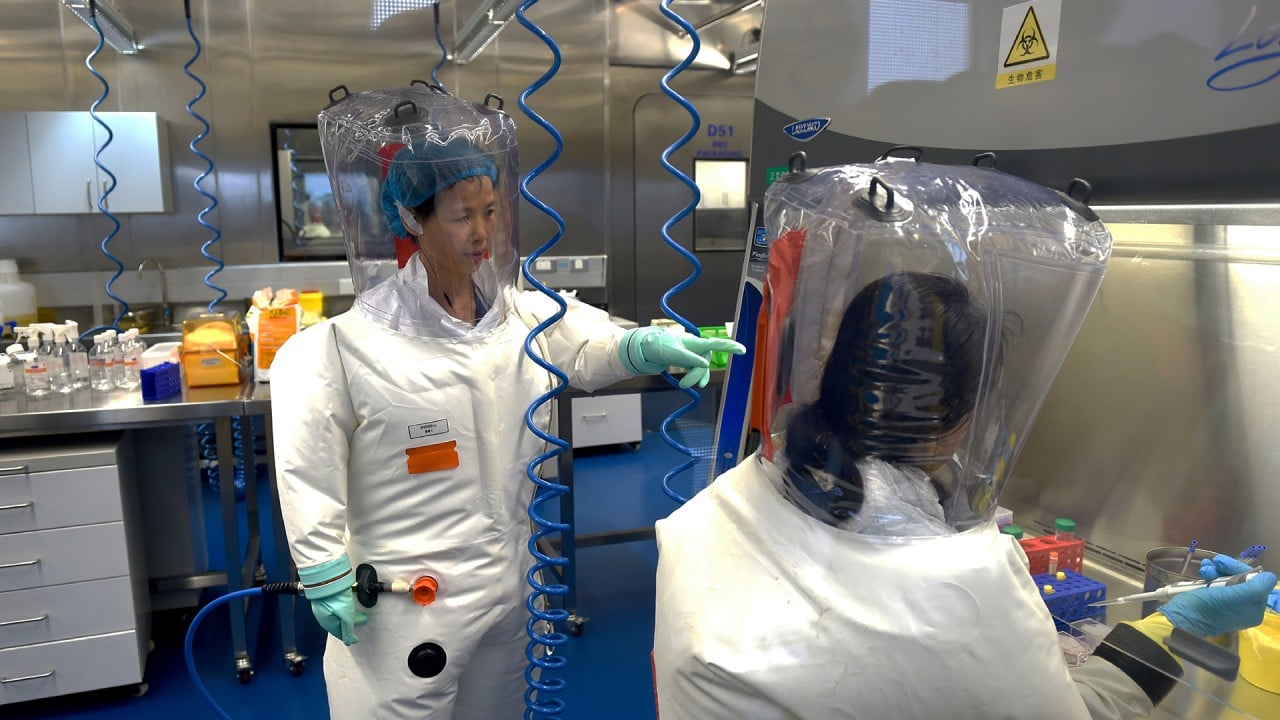
Amid tensions over Covid-19 origins, China and the world need to cooperate more on biosafety
- Chinese scientists and regulators fear the space is narrowing for them to pursue normal collaboration on biosafety both in China and outside
- Their access to scientific knowledge, research materials and laboratory equipment with both civilian and military applications is becoming more restricted
Yet, if biosecurity is too sensitive for the time, it still deserves broad support. It should be an icebreaker in the diplomatic stalemate on cooperation between Chinese and foreign scientists.
World Health Organization documents describe biosafety as “the containment principles, technologies and practices that are implemented to prevent the unintentional exposure to pathogens and toxins, or their accidental release”. Biosafety begins with protecting the scientists and laboratory technicians and workers who handle pathogens.
These two terms are often used interchangeably, partly because, as organising principles, they are interlinked. But biosecurity is more tilted towards ascertaining the responsibility of agencies, often governmental, in preventing the intentional misuse of microorganisms. Hence, the term can easily inspire considerations beyond science.
The full name of the document Chinese diplomats put forward is the “Tianjin Biosecurity Guidelines for Codes of Conduct for Scientists”. It has benefited from scientific collaboration between Tianjin University and the Johns Hopkins Centre for Health Security, dating back to 2012. That intra-academy partnership enjoyed support from the US Department of State and China’s Ministry of Foreign Affairs.
This context is useful to help dispel suspicions about diplomatic-political scheming by Beijing amid ongoing geopolitical tensions. Self-protection is instinctual, and constant assurances of benign intent while pursuing international cooperation is vital.
Along with its enactment of a Biosecurity Law in 2020, China set up an intra-agency coordination mechanism, led by the ministries of foreign affairs and health. The mechanism solicits input from the country’s technical experts through biannual conferences. When I was asked to join one of the conferences in late July, I learned that it was the first time a scholar of international politics had shared insights about geopolitics.
This is different from what I have read in international studies textbooks that use the term to refer to the wider societal issue of the protection and control of pathogens and toxins to prevent their deliberate theft, misuse or diversion, for biological warfare or terrorism.
The Chinese equivalent for grouping such concerns is shengwu anbao, which translates as an assurance of security for all, not just frontline scientists and workers handling toxic ingredients or infectious pathogens.
My takeaway is that concern is growing among Chinese scientists and regulators about the larger international policy environment affecting their work: they fear the space is narrowing for them to pursue what they see as normal collaboration on biosafety both in China and outside the country.
People everywhere should approach biosafety and biosecurity challenges with a sense of humility. There is constant value in learning from each other, including one’s mistakes.
In this sense, the Tianjin guidelines should be treated as a welcome addition to international collaboration for greater harmonisation of regulatory efforts.
Zha Daojiong is a professor at the School of International Studies, Peking University



